In a bumper issue covering two weeks, a host of COVID-related research continues to make a valuable contribution to our pandemic response; new appointments and funding boost research into adolescent health, the onset of epilepsy after traumatic brain injury & our involvement in clinical trials; and our experts lead the discussion on COVID-19, drug-related deaths, and the damage caused by sports wagering; we celebrate student appointments & achievements; and researchers show how genetics can be used to help predict, diagnose and treat illness. Here’s just some of what happened this fortnight at Alfred Research Alliance.
BURNET INSTITUTE
Taking a Lead in the COVID-19 Recovery
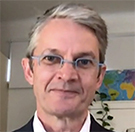
In recent articles, Burnet Institute experts continue to lead the discussion on the COVID-19 response.
In a recent interview on ABC radio, CEO Prof Brendan Crabb pointed out it was more important to focus on milestones than time frames during the COVID exit, and also drew attention to the need for improvements in contact tracing during a television interview with the ABC.
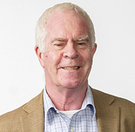 Prof Crabb and epidemiologist Prof Mike Toole from the Know-C19 program also penned an article for The Age, arguing strongly for Victoria to resist external pressure to announce a time-bound transition from stage four COVID-19 restrictions and focus instead on meeting a number of key criteria. Prof Toole also shared his insights into the situation in Sydney, in an article for the Sydney Morning Herald.
Prof Crabb and epidemiologist Prof Mike Toole from the Know-C19 program also penned an article for The Age, arguing strongly for Victoria to resist external pressure to announce a time-bound transition from stage four COVID-19 restrictions and focus instead on meeting a number of key criteria. Prof Toole also shared his insights into the situation in Sydney, in an article for the Sydney Morning Herald.
Burnet welcomes Dr Julie Hennegan to the Global Adolescent Health Working Group
 Burnet Institute this week welcomed Dr Julie Hennegan, one of the world’s leading menstrual health researchers, to the Global Adolescent Health Working Group as Senior Research Officer. Dr Hennegan brings a wealth of knowledge to Burnet, where she will will lead a multi-country study in partnership with UNFPA and UNICEF exploring pathways to adolescent pregnancy to enable a more targeted policy response.
Burnet Institute this week welcomed Dr Julie Hennegan, one of the world’s leading menstrual health researchers, to the Global Adolescent Health Working Group as Senior Research Officer. Dr Hennegan brings a wealth of knowledge to Burnet, where she will will lead a multi-country study in partnership with UNFPA and UNICEF exploring pathways to adolescent pregnancy to enable a more targeted policy response.
What More Can We Do to Reduce Opiod-Related Death?
 More than five Australians losing their life each day from a drug overdose. Opiods continue to be the leading cause, with opioid-related overdoses doubling since 2006. What more can we do? That’s the question posed by Burnet researchers Prof Paul Dietze and Dr Amanda Roxburgh, and Monash University’s Dr Suzanne Nielsen in a recent insightful article published in The Conversation.
More than five Australians losing their life each day from a drug overdose. Opiods continue to be the leading cause, with opioid-related overdoses doubling since 2006. What more can we do? That’s the question posed by Burnet researchers Prof Paul Dietze and Dr Amanda Roxburgh, and Monash University’s Dr Suzanne Nielsen in a recent insightful article published in The Conversation.
NUCLEUS NETWORK
Nucleus Network Begins Dosing for 3rd COVID-19 Vaccine Trial
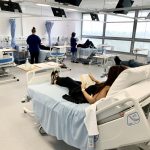 On 1 September, Nucleus Network commenced dosing the first human participants for its third Phase 1/2 COVID-19 vaccine trial, in collaboration with the vaccine’s developer Serum Institute of India Pvt. Ltd in and in partnership with local sponsor, Accelagen Pty Ltd. Nucleus is now administering three of some 36 in-human COVID-19 Phase 1 and 2 vaccine trials globally, with The University of Queensland and Novavax also selecting Nucleus Network to conduct their trials. This makes Nucleus one of the only Phase 1 clinical trials specialist entrusted to undertake multiple COVID-19 vaccine trials anywhere in the world. Read more…
On 1 September, Nucleus Network commenced dosing the first human participants for its third Phase 1/2 COVID-19 vaccine trial, in collaboration with the vaccine’s developer Serum Institute of India Pvt. Ltd in and in partnership with local sponsor, Accelagen Pty Ltd. Nucleus is now administering three of some 36 in-human COVID-19 Phase 1 and 2 vaccine trials globally, with The University of Queensland and Novavax also selecting Nucleus Network to conduct their trials. This makes Nucleus one of the only Phase 1 clinical trials specialist entrusted to undertake multiple COVID-19 vaccine trials anywhere in the world. Read more…
MONASH CENTRAL CLINICAL SCHOOL
Funding for Research into Epilepsy after Traumatic Brain Injury
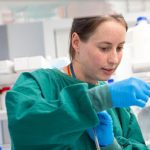 Dr Bridgette Semple from the Department of Neuroscience has been awarded research funding totalling just over $650,000 from the US Department of Defense Epilepsy Research Program (ERP) to investigate first-time onset of epilepsy after infection in the context of traumatic brain injury (TBI). Bridgette was among only one of five applications recommended for funding out of 22 applications that were submitted – outstanding work! Read more…
Dr Bridgette Semple from the Department of Neuroscience has been awarded research funding totalling just over $650,000 from the US Department of Defense Epilepsy Research Program (ERP) to investigate first-time onset of epilepsy after infection in the context of traumatic brain injury (TBI). Bridgette was among only one of five applications recommended for funding out of 22 applications that were submitted – outstanding work! Read more…PhD Student Wins Victorian Young Scientist Research Prize
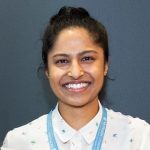 Congratulations to Lakshanie Wickramasinghe, who has been awarded the 2020 Royal Society of Victoria Young Scientist Research Prize in Biomedicine and Health Sciences. Lakshanie is doing her PhD in Central Clinical School’s Department of Immunology and Pathology, supervised by Associate Professor Margaret Hibbs. Her PhD is on “Granulocyte Colony-Stimulating Factor: A new target in neonatal lung disease”. Read more…
Congratulations to Lakshanie Wickramasinghe, who has been awarded the 2020 Royal Society of Victoria Young Scientist Research Prize in Biomedicine and Health Sciences. Lakshanie is doing her PhD in Central Clinical School’s Department of Immunology and Pathology, supervised by Associate Professor Margaret Hibbs. Her PhD is on “Granulocyte Colony-Stimulating Factor: A new target in neonatal lung disease”. Read more…
Lessons from the COVID-19 Pandemic Waves in China
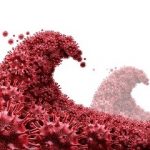
Research on the early stages of the COVID-19 pandemic in China gives important clues into predicting the size and potential causes of second, and subsequent waves and also when restrictions can be lifted once infection rates start to decline. The research is a collaborative effort between Monash University and Xi’an Jiaotong University in China, jointly led by A/Prof Lei Zhang, from Monash CCS. Read more…
$5 Million MRFF Grant for Clinical Trials
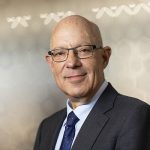 The Australian Clinical Trials Alliance (ACTA) has been granted $5 through the Medical Research Future Fund. Head of the Cancer Research Program at Monash SPHPM and Chair of ACTA, Prof John Zalcberg, (pictured), has welcomed the investment which will ensure ACTA’s continued support for the clinical trials sector with a four-year program that aims to strengthen the capability of the investigator-led sector to embed evidence-based care in the health system, increase the number of clinical trial networks across diseases and disciplines, increase consumer involvement and reduce barriers to participation and recruitment. Read more…
The Australian Clinical Trials Alliance (ACTA) has been granted $5 through the Medical Research Future Fund. Head of the Cancer Research Program at Monash SPHPM and Chair of ACTA, Prof John Zalcberg, (pictured), has welcomed the investment which will ensure ACTA’s continued support for the clinical trials sector with a four-year program that aims to strengthen the capability of the investigator-led sector to embed evidence-based care in the health system, increase the number of clinical trial networks across diseases and disciplines, increase consumer involvement and reduce barriers to participation and recruitment. Read more…
Researchers Sound Warning on Use of Aerosol Boxes in Treating COVID-19 Patients
 Two Australian studies lead to a global caution on use of aerosol boxes in treating COVID patients – with one warning it increases exposure by up to 500%. Dr Peter Chan, who is doing an NHMRC-sponsored PhD at Monash SPHPM co-wrote one paper cited by the FDA, and A/Prof David Brewster, from the Monash University Central Clinical School, who co-wrote the original research paper with Dr Jonathan Begley from Cabrini Hospital – both published in Anaesthesia, the journal of the Association of Anaesthetists in the UK. Read more…
Two Australian studies lead to a global caution on use of aerosol boxes in treating COVID patients – with one warning it increases exposure by up to 500%. Dr Peter Chan, who is doing an NHMRC-sponsored PhD at Monash SPHPM co-wrote one paper cited by the FDA, and A/Prof David Brewster, from the Monash University Central Clinical School, who co-wrote the original research paper with Dr Jonathan Begley from Cabrini Hospital – both published in Anaesthesia, the journal of the Association of Anaesthetists in the UK. Read more…Sports Wagering – A Hard Hit on AFL Players
 Gambling is a growing issue in Australia with over $25 billion lost each year and around 80,000-160,000 Australian adults experiencing significant problems from betting. Sports wagering is the fastest-growing segment of the gambling market, with an average of $1.5 billion being lost each year. In a recent article A/Prof Charles Livingstone explains consequences extend far beyond the gambler themselves, to family members, friends, employers and even AFL players themselves. Read the summary here or go to the full article.
Gambling is a growing issue in Australia with over $25 billion lost each year and around 80,000-160,000 Australian adults experiencing significant problems from betting. Sports wagering is the fastest-growing segment of the gambling market, with an average of $1.5 billion being lost each year. In a recent article A/Prof Charles Livingstone explains consequences extend far beyond the gambler themselves, to family members, friends, employers and even AFL players themselves. Read the summary here or go to the full article.
The Role of Physios in the Treatment of COVID-19
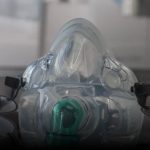 Research led by Prof Carol Hodgson is looking into the role of physiotherapy in the treatment and rehabilitation of COVID patients. The COVID-Recovery study explores the long-term outcomes for COVID-19 ICU patients to increase the understanding of the roles that physios are asked to play and are capable of playing in any future pandemic or surge in ICU. “Even with a vaccine we will still be dealing with its effects for a long time,” she says. Read more…
Research led by Prof Carol Hodgson is looking into the role of physiotherapy in the treatment and rehabilitation of COVID patients. The COVID-Recovery study explores the long-term outcomes for COVID-19 ICU patients to increase the understanding of the roles that physios are asked to play and are capable of playing in any future pandemic or surge in ICU. “Even with a vaccine we will still be dealing with its effects for a long time,” she says. Read more…
BAKER HEART AND DIABETES INSTITUTE
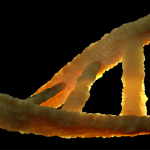
New research from the Baker Institute shows how genetics is increasingly being used to aid risk prediction, diagnosis, and earlier treatment of diseases such as juvenile arthritis, a common cause of chronic disability in children. Published this week in the Annals of the Rheumatic Diseases, Dr Rodrigo Cánovas, A/Prof Michael Inouye and colleagues outline how they have developed and evaluated genomic risk scores to aid the diagnosis of juvenile idiopathic arthritis and its subtypes in children under 16 years of age, and to help prioritise higher-risk individuals for follow-up and treatment. Read more…

The Baker Department of Cardiometabolic Health is a new department of the Melbourne Medical School and will leverage the Baker Institute and University of Melbourne strengths in cardiometabolic capabilities and collaboration.
Recently, the department welcomed its first PhD students, Terrence Sanchez Fong and Gavriel Olschansky .Terrence (top) will use machine learning to crunch data on more than 100,000 young people, developing a predictive index to identify early vascuar ageing (read more here). 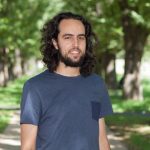
Gavriel’s work will contribute to the development of a robust model predicting an individual’s disease risk based on their genomic risk and their lipidomic profile.
ALFRED HEALTH
Breathless? Clinic to Measure Heart Health After COVID
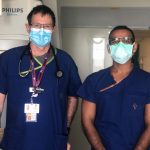 The first specialist clinic in Australia to study the impact of COVID-19 on the heart is opening at The Alfred. While some international evidence suggests the infectious virus can leave behind cardiac scarring, cardiologists and respiratory physicians are working together to explore whether unexplained breathlessness may be the first sign of trouble. Read more…
The first specialist clinic in Australia to study the impact of COVID-19 on the heart is opening at The Alfred. While some international evidence suggests the infectious virus can leave behind cardiac scarring, cardiologists and respiratory physicians are working together to explore whether unexplained breathlessness may be the first sign of trouble. Read more…
.
New Hope for Brain Cancer Treatment
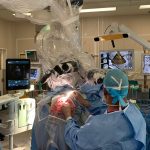
Gliomas, including Glioblastoma (GBM), are the most common and aggressive form of brain cancer. Despite current treatment options, prognosis for patients is bleak, with average survival of only 14-15 months after diagnosis. Now, Dr Mastura Monif’s lab in the Neuroscience department is looking into a new drug in the quest to find a safe and effective treatment, with PhD student Ms Liyen Katrina Kan developing a new technique to test different drugs on GBM tissue. Find out more…
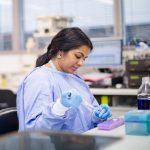 For this research, the team use human GMB samples provided by the Alfred Brain Tumour Bio-databank, which collescts samples of tumours removed from patients to help researchers find more effective treatment options. The Brain Tumour Bio-databank is one of three biobanks at The Alfred. Biobanks greatly enhance the impact potential of research by enabling discovery of bio-markers and disease-causing mechanisms that can rapidly lead to development of new treatments. Read more…
For this research, the team use human GMB samples provided by the Alfred Brain Tumour Bio-databank, which collescts samples of tumours removed from patients to help researchers find more effective treatment options. The Brain Tumour Bio-databank is one of three biobanks at The Alfred. Biobanks greatly enhance the impact potential of research by enabling discovery of bio-markers and disease-causing mechanisms that can rapidly lead to development of new treatments. Read more…
Lockdown Leads to Fewer People Seeking Medical Care
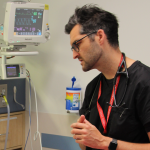 According to new research, Victoria’s strict ‘stay at home’ measures throughout April and March resulted in significantly fewer injuries presenting to The Alfred and Sandringham emergency departments. However, the researchers fear some people with time-sensitive medical conditions may be choosing not to seek emergency care, prompting doctors to issue an urgent call for people to continue seeking medical care if they need it. Read more…
According to new research, Victoria’s strict ‘stay at home’ measures throughout April and March resulted in significantly fewer injuries presenting to The Alfred and Sandringham emergency departments. However, the researchers fear some people with time-sensitive medical conditions may be choosing not to seek emergency care, prompting doctors to issue an urgent call for people to continue seeking medical care if they need it. Read more…
